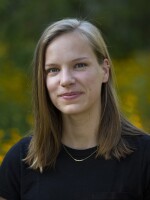Sports gambling isn't exactly a financial market, but it rhymes with financial markets. What happens on Wall Street somehow eventually also happens in sports gambling. So in the 1980s, when computers and deep statistical analysis entered the markets, it also entered the sportsbooks and changed the world of sports gambling in ways we see every day now.
On today's episode, we have a story from Michael Lewis' new season of his podcast Against The Rules. We hear from a bookie who was able to beat the odds using statistical analysis, and the other bookie who managed to beat those odds, using an even more subtle science: behavioral analysis. Plus, how it's harder than ever to win against the house, and why those offers of free bets in TV ads are maybe not such a good idea.
This episode was hosted by Michael Lewis and Mary Childs. Our version of the podcast was produced by Emma Peaslee and edited by Martina Castro. It was fact checked by Sierra Juarez, and engineered by Cena Loffredo. Alex Goldmark is Planet Money's executive producer.
Help support Planet Money and hear our bonus episodes by subscribing to Planet Money+ in Apple Podcasts or at plus.npr.org/planetmoney.
Always free at these links: Apple Podcasts, Spotify, the NPR app or anywhere you get podcasts.
Find more Planet Money: Facebook / Instagram / TikTok / Our weekly Newsletter.
Music: NPR Source Audio - "New Western" and "The Westerners"
Copyright 2024 NPR










